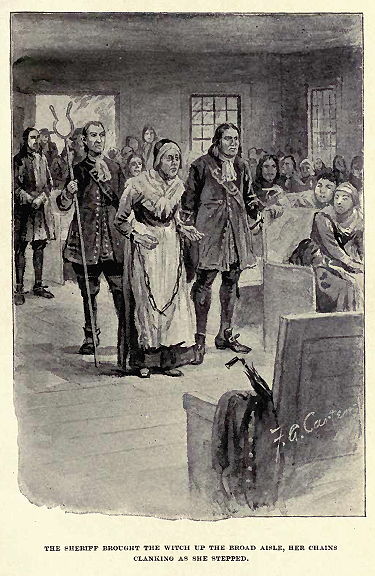
The Salem Witch Trials - What Actually Happened?
The Salem Witch Trials of 1692-93 was a dark chapter in American history, when over 200 people were accused of practicing witchcraft, with 20 being executed. The trials were a mass hysteria, a societal fear that was driven by religious emotion and as ever throughout history, a desire for control. In this blog post, we will take a closer look at the Salem Witch Trials, the context that led to it and how it related to the people's beliefs and societal view on witchcraft.
Dating back to ancient times, back in the 17th century, America was a mostly Puritan society. Religious beliefs played a central role in daily life. It was also a time of great change and uncertainty, colonies were expanding and becoming more diverse.
The Year, of 1692, Salem Massachusetts:
In 1692, a group of young girls in Salem, Massachusetts began to exhibit strange behavior and made accusations of witchcraft against several local women. These accusations led to investigations and arrests, and the trials quickly snowballed out of control. Many of the accused were targeted due to their status as outsiders or non-conformists in society, and the trials were characterized by a lack of concrete evidence and due process. Over 200 people were accused of witchcraft, with 20 being executed.
Rebecca Nurse, The Nurse That Sparked Change:

One of the most famous figures associated with the Salem Witch Trials is a woman named Rebecca Nurse. Nurse was a respected member of the Salem community and a devout Puritan who was accused of witchcraft in 1692.Nurse's trial was highly publicized and attracted a huge crowd. Her execution, along with those of several other women, sparked widespread outrage and led to question the fairness of the trials
The trials had a devastating impact on the local community, it took several years for the ruling parties to realize the gravity of their actions. In the years that followed, many of the accused were exonerated, with some even receiving compensation for their wrongful imprisonment. The Salem Witch Trials are a powerful reminder of the dangers of mass hysteria, going along with group think and blindly following those in positions of power.
To conclude:
Witchcraft has been persecuted and demonised throughout history, but it's also served as a huge source of empowerment and resistance. The Salem Witch Trials are just a small tragic part of this history. But witchcraft and pagan practices are resilliant, celebrated and practiced around the world by many communities. We must honour those that lost their lives in the trials, it's an opportunity to remember that we must reflect on past mistakes and ensure history does not repeat itself.
